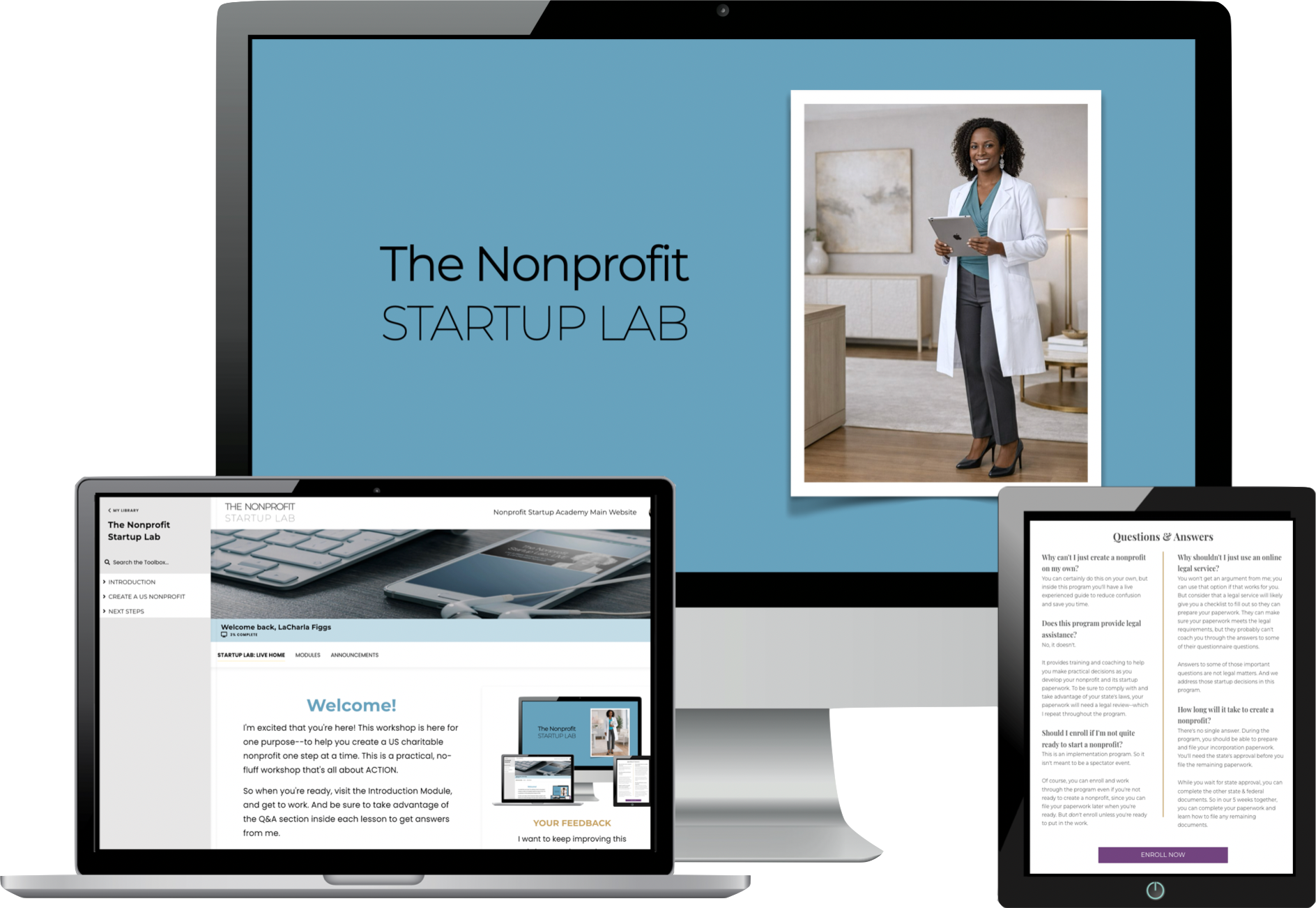
Many churches minister to people in need inside and outside the church walls. But the growing need for help can outpace a church’s resources. At that point, church leaders often consider the wisdom of launching a separate nonprofit to attract more support for their programs.
Launching a nonprofit is not something to be done lightly, but there are at least four good reasons to do it—reasons related to scale, scope, liability, and funding.
Scale
If your church is helping people in need, I'm sure you've seen a steady increase in the number of people needing help. Answering that growing need means expanding your services. And that will likely require more materials and supplies, maybe a larger facility, better organization, and improved record keeping.
Most of all, though, you’ll need more people to do the work.
Sidestep Burnout
Let’s admit it; in many churches, a few members are doing most of the work. You DO NOT want to burn out or drive away faithful members by asking too much of them. So your church’s ability to expand its charitable services is limited by your volunteer pool. By creating a separate nonprofit you create a new platform for raising the funds to hire qualified staff, buy materials and supplies, and acquire additional space if you need it.
So reason #1 to say yes is the ability to serve many more people.
Scope
Sooner or later, you might also want to expand the kinds of services you offer. For example, as you feed hungry families, you may realize the parents need help with job readiness training, resumé development and, interview skills.
So you decide to broaden the scope of your services to answer those needs, too. To expand the scope of your services, your church will have to create one or more new programs. And again, this usually translates into more staff, resources, and space.
Volunteers May Not Be Enough
Chances are, your new programs will call for workers with advanced skills, licenses, or specific professional expertise. You may not have people with these credentials inside your pool of volunteers. By creating a charitable nonprofit, you will gain a vehicle for raising the funds and recruiting highly qualified staff.
You can also take advantage of the business disciplines that come with starting a nonprofit.
Strategic planning, for example, is common in nonprofit organizations, but less so in churches. The nonprofit’s board can use strategic planning to build a results-driven program that will expand the church's community services without overtaxing its human and financial resources.
Reason 2 is to position yourselves to offer a wider array of complementary services.
Liability
Whenever you work with people, you run the risk of legal challenges.
Someone slips on your front step, and they sue. Someone doesn’t like the advice they got from a program volunteer, and they sue. A volunteer feels discriminated against, and they sue, too.
Nonprofit status can help protect your church’s assets from legal actions that result from delivering charitable services in your community.
Protection comes from the fact that the nonprofit corporation is a separate legal entity from your church, and the charitable programs would be run by the nonprofit.
Of course, having nonprofit status, won’t prevent lawsuits. But the law in many—if not all—US states protects nonprofit board members from personal liability from lawsuits like this so long as they’re not negligent or violating the law. And a nonprofit can buy insurance to protect its board, staff, volunteers, and the organization itself from the cost of legal action.
After all, you don't have to be guilty to be sued. So it's best to protect yourself.
Reason 3 is to protect your church's assets from certain legal liabilities.
Funding
It’s no secret that serving people in need is costly. If your church needs tens of thousands or hundreds of thousands of dollars to serve your community, you probably need a funding base that goes beyond family, friends, and members.
By design, charitable nonprofits receive funds from multiple public sources and have access to funds denied to houses of worship.
Reason 4 is to become eligible for financial support that's not available to churches.
Is It Time to Create a Nonprofit?
So there you have 4 good reasons for your church to launch a separate nonprofit. This doesn’t mean nonprofit status will simplify your life; just the opposite will happen.
Chances are, running a nonprofit will feel different from running your church. And that difference may be uncomfortable—especially for more traditional churches. I’ve worked with several churches over the years and noticed that those with traditional leadership and operations tend to struggle the most with nonprofit startup.
The challenge comes from a reluctance to decentralize decision making, increase the pace of the work, and embrace current technology.
And of course, creating a new legal entity brings its own challenges—like new recordkeeping and reporting requirements and maintaining a strong board of directors. So your church should weigh the pros and cons carefully before deciding to create a nonprofit.
Are You Ready?
Are you exploring the possibility of launching a nonprofit? If so, I'd love to support you. You can learn more about my programs on my website or schedule a free 20-minute conversation HERE to learn how I can help you.
-------------------------


